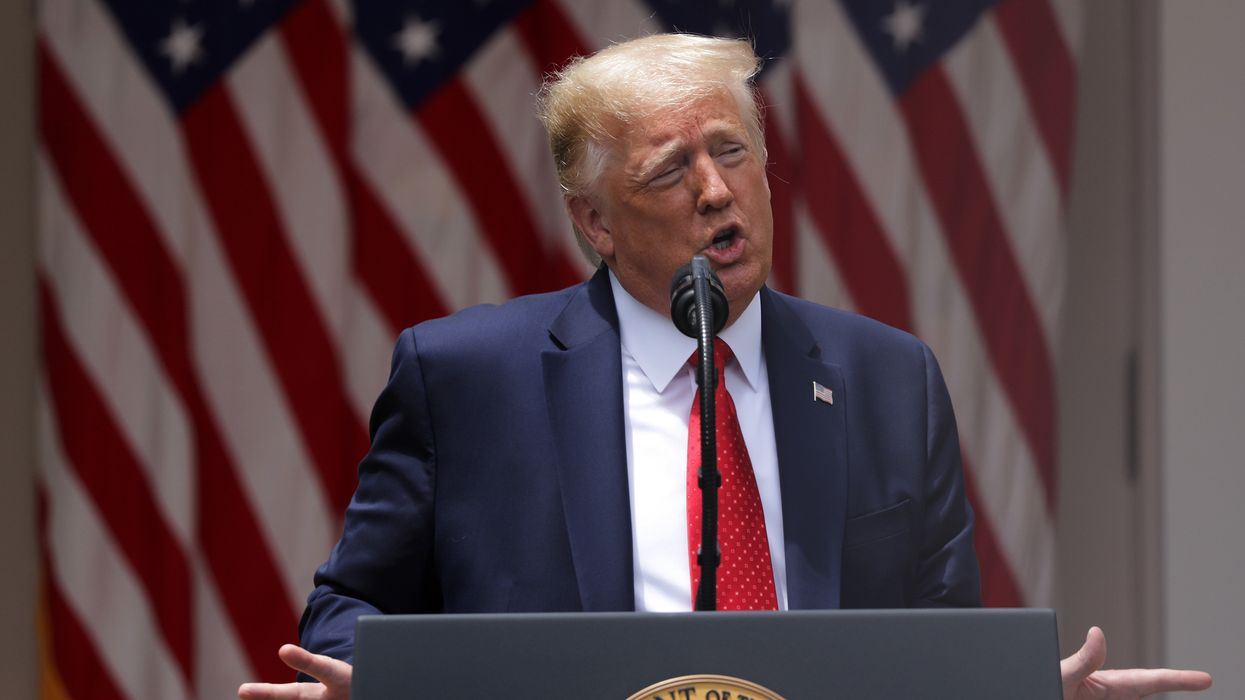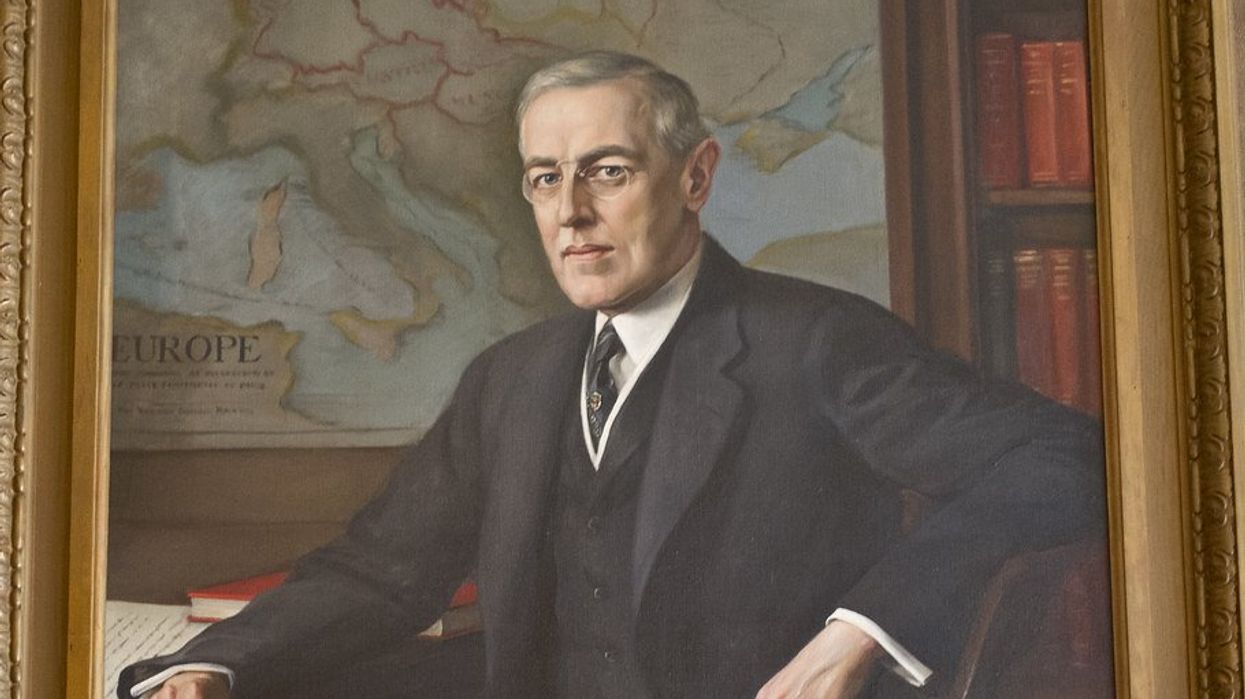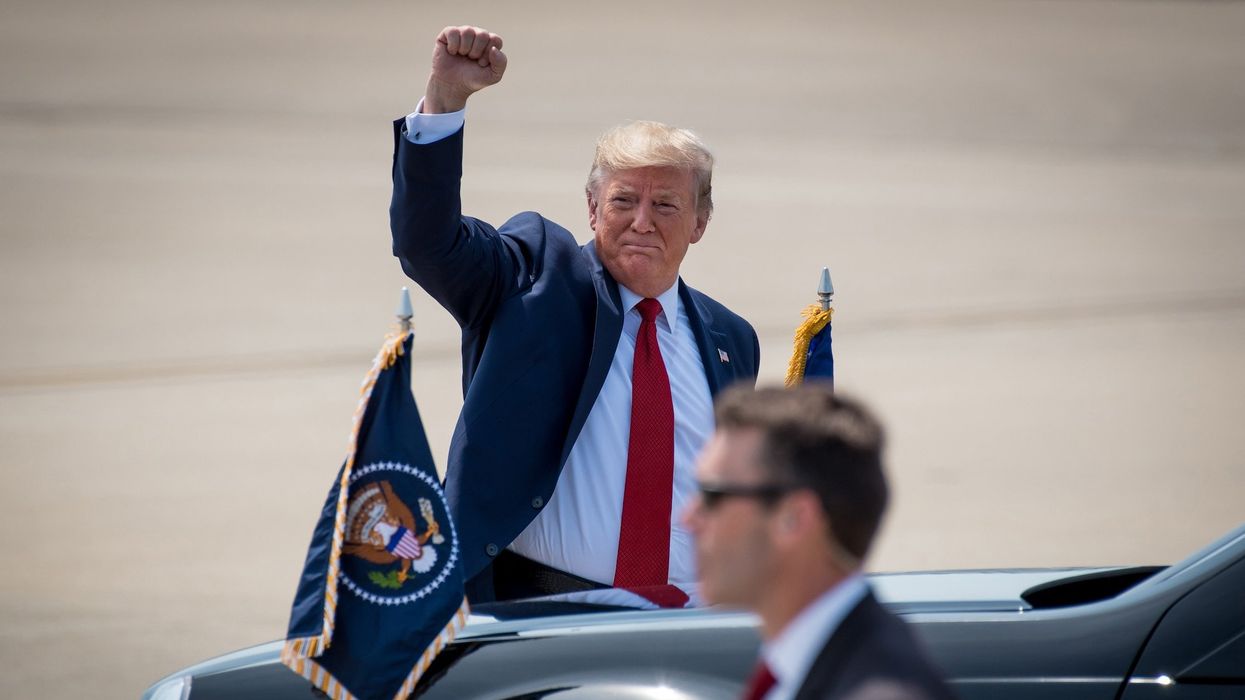On February 14, 2025, President Donald Trump shared this quote on Truth Social and X: "He who saves his country violates no Law."
I’ve learned with President Donald Trump not always to take him literally but to take him seriously. In this case, I am taking his comment very seriously.
It appears that this specific quote, "He who saves his country violates no Law," which is first attributed to Napoleon Bonaparte, was not used by Trump before his post. Not surprisingly, the post has drawn widespread attention and criticism, for obvious reasons, given its implications about executive authority and legality if the words become more than just words.
The statement exemplifies a logical fallacy called "Appeal to Patriotism" or "Appeal to Nationalism."
This fallacy occurs when someone argues that an action is justified or acceptable simply because it is done in the name of one's country or patriotism, regardless of whether it violates laws or ethical principles. In this case, the statement "He who saves his country violates no Law" suggests that any action taken to save the country is inherently lawful. This is a flawed argument because it ignores the possibility of illegal or unethical actions being taken under the guise of patriotism.
Should Trump continue to espouse the concept that anything he does is legal if he is trying to save the country, the ethical and legal implications are serious and must be challenged.
Surprisingly, there have been several instances in American history where presidents have used the "Appeal to Patriotism" to justify their actions or policies. Some notable examples are:
 President Discusses the Future of Iraqgeorgewbush-whitehouse.archives.gov
President Discusses the Future of Iraqgeorgewbush-whitehouse.archives.gov
- President George W. Bush: After the attacks on September 11, 2001, President Bush often invoked patriotism to garner support for the War on Terror and the invasion of Iraq. He framed these actions as necessary for protecting American freedom and security, suggesting that opposing these measures was unpatriotic.
 Former President Donald Trump has promised, if re-elected, to weaponize the Justice Department against his enemies, including Joe Biden.
Alex Wong/Getty Images
Former President Donald Trump has promised, if re-elected, to weaponize the Justice Department against his enemies, including Joe Biden.
Alex Wong/Getty Images
- President Donald Trump: During his 2020 campaign, he argued that voting for Joe Biden would mean China winning, implying that supporting him was the patriotic choice.
 portrait of Woodrow Wilson - study - Woodrow Wilson House … | Flickrwww.flickr.com
portrait of Woodrow Wilson - study - Woodrow Wilson House … | Flickrwww.flickr.com
- President Woodrow Wilson: During World War I, Wilson used patriotic rhetoric to justify the U.S. entry into the war. He framed the war as a fight for democracy and freedom, suggesting that opposing the war effort was unpatriotic.
Historically, there have been instances where U.S. presidents have turned their patriotic words into actions by invoking the Insurrection Act, which is the proper way to proceed.
The Insurrection Act allows the president to deploy the military domestically to suppress insurrections and domestic violence or to enforce federal law. While the Act is legal, its invocation has sometimes been controversial. It has been invoked several times throughout US history:
- President George Washington invoked the Act to suppress the Whiskey Rebellion.
- 1831: President Andrew Jackson used it during the Nullification Crisis.
- 1871: President Ulysses S. Grant invoked it to combat the Ku Klux Klan during Reconstruction.
- 1957 & 1962: President Dwight D. Eisenhower used it to enforce school desegregation in Little Rock, Arkansas.
- 1992: President George H.W. Bush deployed federal troops to Los Angeles during the riots following the Rodney King verdict.
President Donald Trump threatened to invoke it during the 2020 Black Lives Matter protests but never actually did so.
Using the premise of national security, saving the country, or patriotism to justify actions is understandable if the actions don’t violate the Constitution. The historical examples cited were opposed at the time by political opponents who argued that the use of the Insurrection Act pushed the limits of legal authority.
The Insurrection Act does provide specific criteria for when it can be invoked. According to the Act, the President can deploy the military domestically in the following situations:
- When requested by a state's legislature or governor: If a state legislature or governor requests federal assistance to address an insurrection against that state.
- When it is impracticable to enforce the law: If an insurrection in any state makes it impracticable to enforce the law through regular means.
- To protect constitutional rights: If an insurrection, domestic violence, unlawful combination, or conspiracy results in the deprivation of constitutionally secured rights, the state is unable or unwilling to protect those rights.
Unfortunately, the Insurrection Act does not require a state legislature or governor to "prove" an insurrection exists in a formal legal sense before requesting federal assistance, which opens up the possibility of its being used to justify political objectives. However, the Act requires that the request be based on a genuine and serious situation where the state authorities cannot handle the insurrection or enforce the law effectively on their own. Ultimately, the decision to invoke the Insurrection Act rests with the President, who must assess the situation and determine whether the criteria for invoking the Act are met.
The state officials would need to provide the President with sufficient information to justify the invocation of the Insurrection Act. This information would likely include details about the nature and extent of the insurrection, the inability of local law enforcement to maintain order, and the potential threat to public safety and constitutional rights.
It is clear that the President was wrong on February 14th when he said, "He who saves his country violates no Law." The President operates within the framework of the U.S. Constitution and is subject to checks and balances from the other branches of government, including Congress and the Supreme Court.
Whether Trump will choose to test the principle remains to be seen.
David Nevins is co-publisher of The Fulcrum and co-founder and board chairman of the Bridge Alliance Education Fund.




















